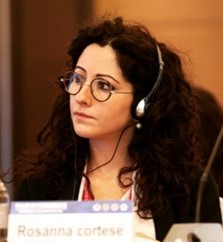The Institute for Clinical and Economic Review (ICER), however, also suggested in its draft report (https://bit.ly/3b1D81n) that policymakers debate short-term pricing options, including a price close to the production cost, until the benefits of the drug can be adequately evaluated.
Amylyx has not made the details of the drug's production cost public.
A panel of outside advisers to the Food and Drug Administration recently declined to endorse its approval, saying clinical study data failed to establish the drug's effectiveness against ALS.
The FDA has since asked for more information from the company and delayed its deadline for deciding on the drug by three months to Sept. 29.
ALS, commonly known as Lou Gehrig's disease, causes nerve cells in the brain and spinal cord to break down, affecting physical function and resulting in severe disability and death.
About 25,000 people in the United States are living with the disease, cause of which is unknown, as per ICER.
While most treatments currently focus on supportive care, two FDA-approved drugs riluzole and Mitsubishi Tanabe Pharma's Radicava modestly slow progression of the disease, said ICER.
The watchdog, which compared Amylyx's drug to other drugs' effectiveness relative to their price, assumed its annual wholesale acquisition cost at $169,000. That is similar to the $171,000 for oral suspension Radicava that was approved by FDA in May.
Amylyx's Albrioza on Monday was approved with certain conditions by Health Canada, its first anywhere in the world.
The drug's applications are based on a 24-week placebo-controlled mid-stage study of 137 participants with ALS. Data from a global late-stage study of about 600 patients is expected in 2024.
By Leroy Leo
Posted on
Previous Article
« Antibiotic use elevates IBD risks in senior citizens Next Article
Dupilumab promising as treatment for eosinophilic oesophagitis »
« Antibiotic use elevates IBD risks in senior citizens Next Article
Dupilumab promising as treatment for eosinophilic oesophagitis »
Related Articles

December 4, 2023
Sickness absence rate increases years before clinical onset of MS
© 2024 Medicom Medical Publishers. All rights reserved. Terms and Conditions | Privacy Policy

